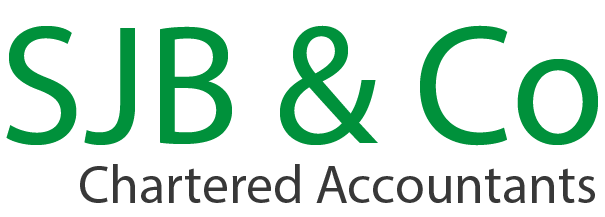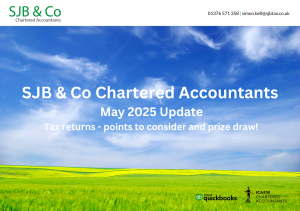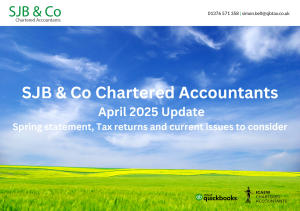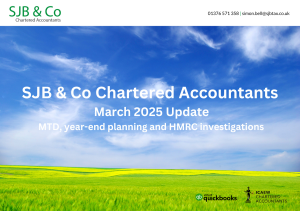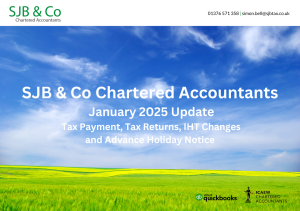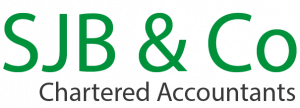Whilst we appreciate that much tax year-end activity is no longer relevant or appropriate in the current circumstances, the usual issues may benefit from consideration:
- Payment of pension contributions prior to year-end to maximise reliefs – reduction in profits next year due to trading circumstances may mean higher tax relief available in the current year;
- Payment of dividends prior to year-end. Currently the first £2,000 of dividends received in a tax year are tax free, thereafter they are taxed at 7.5%, 32.5% and 38.1%. Business owners should consider taking a dividend of at least £2,000 to utilise the allowance where possible before the end of the tax year;
- Timing of capital expenditure for obtaining tax relief;
- Use of Individual Savings Account allowances – up to £20,000 can be contributed per year, so individuals with shares etc in ISA and taxable accounts should consider switching from taxable accounts to ISAs;
- For investors, realisation of capital losses or gains to use up annual exemptions.
The year-end compliance cycle continues with personal tax returns and business accounts to be completed over the coming months. If you should be expecting a repayment due to losses or reducing income resulting in excessive payments on account speak to us and will endeavour to prioritise your accounts.
Budget
There were a number of changes in the Budget for 2020/21 that may be relevant for individuals and businesses:
- Personal allowances and the basic rate band remain unchanged at £12,500 and £37,500, so that the 40% tax rate continues to start at £50,000;
- National insurance Class 1 primary threshold and Class 4 lower profits limits has increased to £9,500 which will boost income for employees and the self-employed, other NI thresholds have had indexation increases.
- The weekly use of home allowance for employees required to work at home by their employer increases from £4 to £6 per week from April 2020. Larger amounts can be claimed but only if evidenced by proof of costs incurred.
- There is a significant change to the pension taper rules for higher earners, from 6 April 2020 with the point at which the annual pension allowance starts to reduce increased to £240,000, this means that individuals will continue to have an annual allowance of £40,000 up to adjusted income of £240,000, thereafter the allowance reduces by £1 for every £2 of income until the allowance reaches the reduced minimum of £4000 at an income of £312,000, this means that for any one with an adjusted income between £150,000 and £300,000 they should benefit from increased annual pension allowance and it is only those with adjusted income over £300,000 where the pension annual allowance is lower with a minimum of £4,000 with adjusted income of £312,000 or over.
- The employment allowance which reduces employers’ NIC is increased from £3,000 to £4,000 and is available to smaller employers;
- Capital gains tax entrepreneurs relief- the lifetime limit is reduced from £10 million to £1 million, although this is a large reduction, the availability of a 10% tax rate on business sales for up to £1m remains a valuable relief for entrepreneurs.
- The reduction in corporation tax planned for next has been cancelled with the rate remaining at 19%
Changes to capital gains tax on residential properties from 6 April 2020
There are a number of changes being made to the capital gains taxation treatment of UK residential property which come into effect from 6 April 2020 that relate principally to landlords but potentially ordinary home owners as well in certain situations.
Lettings relief – landlords who have previously occupied a rental property as their main residence have been able to claim lettings relief up to £40,000 of capital gain. After 5 April 2020, lettings relief will only apply where the property was jointly occupied by the landlord and tenant which will exclude most rental properties.
Final period of ownership – the exemption for private residence relief for the final period of ownership is being reduced from 18 to 9 months. This means that a home needs to be sold within 9 months of ceasing to live in the property to avoid a proportion of the gain becoming taxable.
Payment date for capital gains – this is to be shortened to 30 days from completion. Currently capital gains tax is payable on the 31st of January after the end of the tax year of sale of a property. For sales on or after 6 April 2020 of UK residential property resulting in a taxable gain a UK land return will need to be completed and tax paid within 30 days of completion.
For more information or to discuss any issues raised above please contact Simon Bell by phone on 01376 571358 or email [email protected] . This article is written in general terms and therefore cannot be relied on to cover specific situations; applications of the principles set out will depend on the particular circumstances involved and it is recommended that you take professional advice before acting or refraining from acting on any material in this article.
